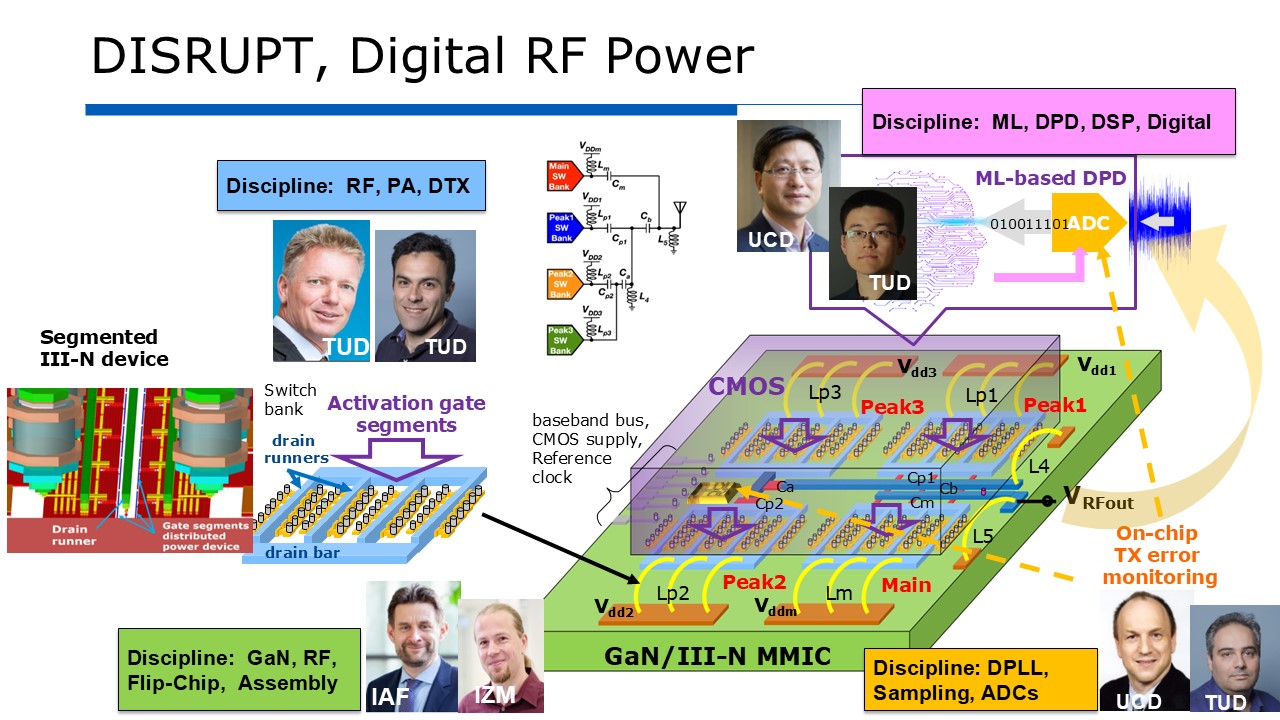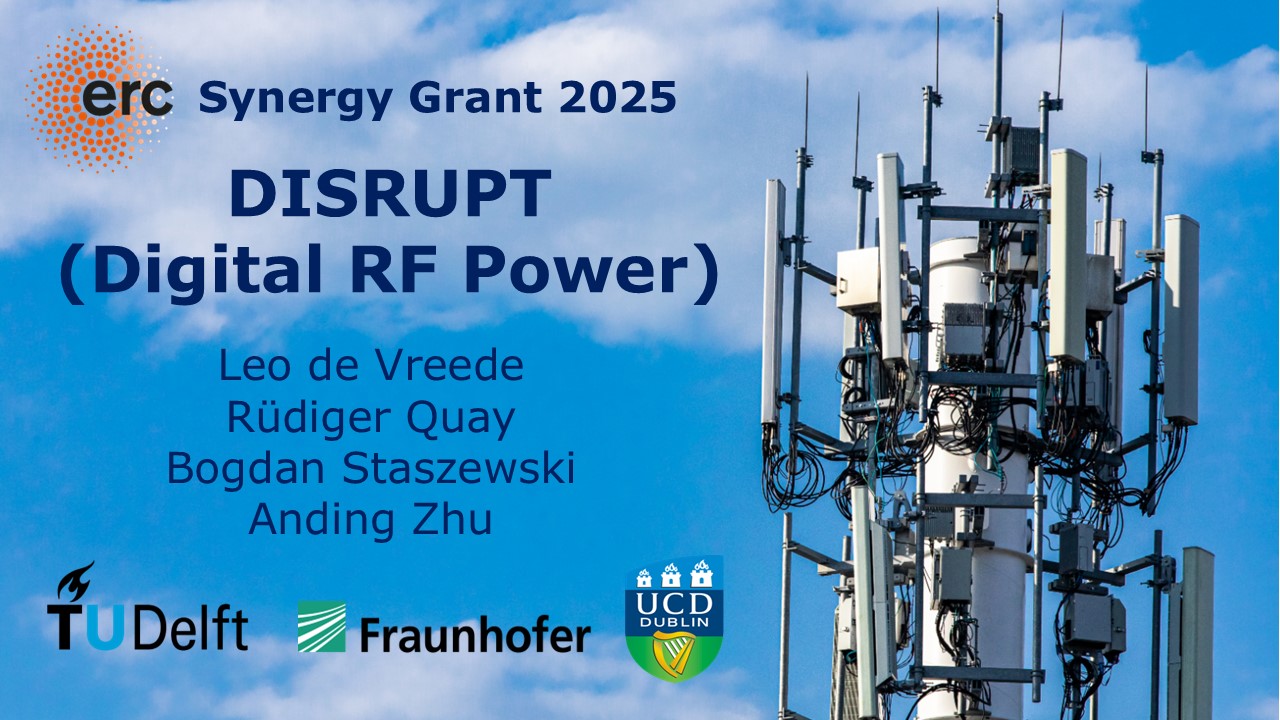Digital RF Power (DISRUPT)
DISRUPT (Digital RF Power) is an ambitious and transformative research project aiming to address the growing ecological impact of wireless communications. The current carbon footprint of global wireless networks is comparable to that of aviation, accounting for 2–3% of worldwide CO₂ emissions. Without major innovation, this figure is expected to rise sharply as 5G and 6G communication systems continue to scale.
The project brings together four world-leading researchers:
- Prof. Leo de Vreede (TU Delft) – expert in digital transmitter architectures
- Prof. Rüdiger Quay (Fraunhofer IAF and professor at the University of Freiburg) – specialist in GaN semiconductor technology
- Prof. Bogdan Staszewski (UCD) – pioneer in digital PLLs and transceivers
- Prof. Anding Zhu (UCD) – expert in digital predistortion.
This research team is complemented with four highly talented junior scientists to gain even more momentum and handle the workload and complexity of the project adequately, namely: Dr. Morteza Alavi (TU Delft), Dr. Prof. Masoud Babaie (TU Delft), Dr. Chang Gao (TU Delft), and Dr. Thomas Fritzsch (Fraunhofer IZM).
Their shared goal is to develop a revolutionary, fully digital transmitter architecture that replaces the most energy-intensive components in wireless infrastructure: the analog-dominated base stations, which are responsible for over 70% of network energy consumption.
A DISRUPTive Approach to Energy-Efficient Wireless Transmission
The project adopts a radically new approach: co-integrating advanced CMOS (Complementary Metal-Oxide-Semiconductor) with a yet-to-be-developed segmented III-Nitride (III-N) semiconductor platform. This integration will enable a fully digital RF transmitter, built from thousands of ultra-fast, low-threshold III-N FET devices arranged in switch-bank arrays. These devices will be individually controlled with picosecond precision by a CMOS driver layer mounted above via ultra-high-density flip-chip interconnects.
This unique digital structure will enable the direct generation of high-power, wideband, coherent RF signals, with precise control over amplitude and phase. The platform will also pioneer novel energy efficiency enhancement techniques and enable seamless integration of digital signal processing, clock generation, error correction, and AI-based signal optimization.
The DISRUPT project aims to deliver record-breaking digital transmitters for applications in 5G and 6G, and will work closely with industry partners to ensure early-stage technology transfer and long-term societal impact.
The team’s vision is to set a new global benchmark for energy-efficient wireless infrastructure, empowering future mobile networks to meet soaring data demands while minimizing environmental cost.
PhD. and PD positions for DISRUPT will become available shortly: Applicants, please send an email to Beatrice Piovan: B.Piovan@tudelft.nl
For more information, see the
project homepage.

Project data
| Researchers: | Leo de Vreede, Morteza Alavi, Masoud Babaie, Chang Gao, Bogdan Staszewski |
|---|---|
| Starting date: | April 2026 |
| Closing date: | April 2032 |
| Funding: | 10000 kE; related to group 4200 kE |
| Sponsor: | ERC Synergy Grant |
| Partners: | If you want to team up to develop the envisioned DTX technology, please contact Prof. Leo de Vreede for more details. |
| Users: | If you are interested in using DTX technology, please Contact Prof. Leo de Vreede for more details. An industry board will be established in 2026 to advise the DISRUPT project. |
| Contact: | Leo de Vreede |